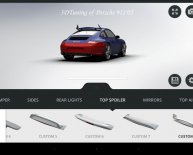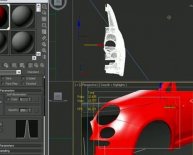
What is a car Tune?
Some things never change, such as the need for periodic preventive maintenance. But a tune-up is one job that's changed a great deal over the course of automotive history. The outdated term is still widely used by many people to describe a service procedure that's supposed to make an engine run better. There's no absolute definition of what exactly a tune-up should include, but most would agree that it involves replacing the spark plugs and performing other adjustments to maintain or restore like-new engine performance.
The problem is there's not much that can adjusted under the hood on many late model vehicles. Ignition timing is fixed and controlled by the engine computer, as is idle speed and the fuel mixture. You can still check base timing (maybe), idle speed and various emission functions to make sure everything is functioning within factory specs and are functioning properly. But there really isn't much of anything left to "tune." Yet many motorists still want tune-ups and believe tune-ups are an important and necessary service.
Most likely, when you talk about a tune-up its probably because you're experiencing some kind of driveability problem. Your vehicle might be getting hard to start, not getting the fuel mileage it once did, hesitating or stalling, knocking or not running with the same zip and power as before. Or, your vehicle may have failed an emissions test. So what you probably need is an engine performance analysis - and maybe a new set of spark plugs, too.
A simple maintenance type tune-up (a new set of plugs) may make an engine easier to start, improve fuel economy, lower emissions, restore lost pep and power, and so on provided engine performance deteriorated because of worn or fouled spark plugs. But if the problem lies elsewhere, a new set of plugs alone won't do the trick. A "tune-up" under these circumstances would be a waste of time and money.
Tune-Up Checks
Any tune-up today should start with a battery of performance checks to base line or confirm the engine's overall condition. These should include:
- Battery voltage (very important with all of today's onboard electronics). Charging voltage.
- Power balance or dynamic compression (to identify any mechanical problems such as leaky exhaust valves, worn rings, bad head gasket, bad cam, etc. that could adversely affect compression and engine performance)
- Engine vacuum (to detect air leaks as well as exhaust restrictions) Operation of the fuel feedback control loop (to confirm that the system goes into closed loop operation when the engine warms up)
- Scan for fault codes (to verify no fault codes are present, or to retrieve any codes that may be present so they can be diagnosed and eliminated) Check exhaust emissions (this should be a must in any area that has an emissions testing program to confirm the vehicle's ability to meet the applicable clean air standards, and to detect gross fuel, ignition or emission problems that require attention)
- Verify idle speed (should be checked even if computer controlled to detect possible ISC motor problems); Idle mixture (older carbureted engines only, but injector dwell can be checked on newer vehicles to confirm proper feedback fuel control)
- Check ignition timing - if possible (should be checked even if it is not adjustable to detect possible computer or sensor problems) Operation of the EGR valve.
Read more:
- Pourquoi le Monde des Voitures ? Mais c’est évident, c’est le meilleur site qui parle de l’entretien de la voiture, qui donne les conseils les plus nécessaires sur le tuning et les réparations, qui vous offre l’occasion d’améliorer votre manière de conduite. N’hésitez pas à visiter le site et à apprendre quelque chose de nouveau!

















